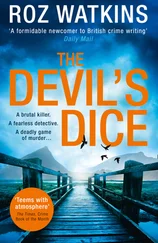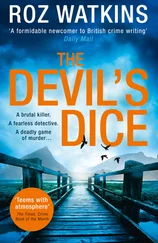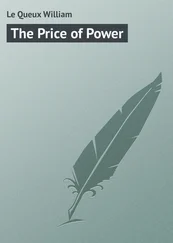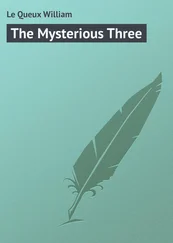William Le Queux - Devil's Dice
Здесь есть возможность читать онлайн «William Le Queux - Devil's Dice» — ознакомительный отрывок электронной книги совершенно бесплатно, а после прочтения отрывка купить полную версию. В некоторых случаях можно слушать аудио, скачать через торрент в формате fb2 и присутствует краткое содержание. Издательство: Иностранный паблик, Жанр: foreign_prose, на английском языке. Описание произведения, (предисловие) а так же отзывы посетителей доступны на портале библиотеки ЛибКат.
- Название:Devil's Dice
- Автор:
- Издательство:Иностранный паблик
- Жанр:
- Год:неизвестен
- ISBN:нет данных
- Рейтинг книги:4 / 5. Голосов: 1
-
Избранное:Добавить в избранное
- Отзывы:
-
Ваша оценка:
- 80
- 1
- 2
- 3
- 4
- 5
Devil's Dice: краткое содержание, описание и аннотация
Предлагаем к чтению аннотацию, описание, краткое содержание или предисловие (зависит от того, что написал сам автор книги «Devil's Dice»). Если вы не нашли необходимую информацию о книге — напишите в комментариях, мы постараемся отыскать её.
Devil's Dice — читать онлайн ознакомительный отрывок
Ниже представлен текст книги, разбитый по страницам. Система сохранения места последней прочитанной страницы, позволяет с удобством читать онлайн бесплатно книгу «Devil's Dice», без необходимости каждый раз заново искать на чём Вы остановились. Поставьте закладку, и сможете в любой момент перейти на страницу, на которой закончили чтение.
Интервал:
Закладка:
I had actually failed to take notice either of the exterior of the house, or of the thoroughfare in which it was situated!
I had, I knew, driven along Oxford Street eastward to Regent Street, and thence home, but from what direction the conveyance had approached the Marble Arch I knew not. In blank despair I paced my room, for I saw I should be compelled to search London for a house, of which all I knew of the exterior was that it had a wide portico in front and was approached from the pavement by three steps.
My omission to take notice of its aspect overwhelmed me with despair, for there were thousands of similar houses in the West-End, and I knew that, while I prosecuted my inquiries, those responsible for Sybil’s death would be afforded ample time to effect their escape.
That such a search was beset with difficulty I was well aware. But nervousness gave way to determination, at once feverish and fixed, and it was in a mood of perfect self-mastery that, after a long period of mental conflict, I flung myself upon my couch with my plan of operations clearly laid out, and lay thinking over them until the yellow light of the wintry dawn struggled in between the curtains.
Chapter Four
A Deepening Mystery
As the cheerless morning wore on, I sat after breakfast gloomily smoking, trying to verify my first impression that Sybil had been the victim of foul play in the hope of dispelling it. But it was, on the contrary, deepened.
Either I was wrong to think thus; and at any price I was determined to convince myself by facts that I was wrong, or I was right. The sole resource henceforth remaining to me for the preservation of my self-respect and the unburdening of my conscience was ardent and ceaseless search after certainty.
Each hour as I pondered I was plunged more profoundly into the gulf of suspicion. Yet the very position of the intricate problem which I had before me seemed to forbid all hope of discovering anything whatsoever without a formal inquiry. With foolish disregard for the future, I had taken an oath to seek no explanation of what I might witness within that mysterious house; I had placed myself irrevocably under the thrall of the strange, cynical individual who had acted as Sybil’s messenger! Yet, now that Sybil was dead and everything pointed to a crime, I was fully justified in seeking the truth, and had resolved upon bringing the assassin to punishment.
During this debauch of melancholy the door opened and my old friend and college chum, Captain Jack Bethune, burst into the room exclaiming:
“Mornin’, Stuart, old chap. That ancient servitor of yours, Saunders, told me that you’re a bit seedy. What’s the matter?”
“Nothing,” I said, languidly grasping his hand. “Sit down. To what good or evil fortune do I owe the honour of a visit at this unearthly hour?”
“Good fortune, old chap, good fortune!” he laughed, flinging off his overcoat and throwing himself back in the capacious armchair. “The best fortune that could befall a man. Congratulate me, Stuart.”
“Upon what? Have you finished a new book, or has your publisher been unduly generous?”
“Neither. It isn’t a book; it’s a woman!”
“A woman?” I inquired, puzzled.
“I’m engaged to be married, old fellow.”
“To Dora Stretton?”
“To Dora Stretton, the most adorable girl in the world.”
I sighed; not because I regretted his choice. Far from it. Truth to tell, I envied him his happiness.
“With all my heart I congratulate you, Jack,” I cried next second, springing up and grasping his hand. “I wish you every prosperity. I have known Dora ever since a child, and although she may move in a smart set, yet I have had opportunities that you have not of observing her true-heartedness and – what shall I say? – her hatred of the hollow shams and artificiality by which she is surrounded.”
“Yes, you know her far better than I do,” he admitted, lighting a cigarette and adding, “I’d take your opinion upon a woman’s character before anybody else’s. As a novelist, I have gained a reputation for portraying female character, yet I assure you my ability in that direction only exists in the imaginations of my reviewers. I can write about women, but, hang it, old chap, I’m absolutely ignorant of them in real life. You, a calm philosopher, can analyse a woman’s nature and lay every fibre of it bare as if by the scalpel; while I, finding my conclusions always hopelessly at fault when attempting to study from life, have written merely what I have believed to be artistic.”
“Your books are popular, so I suppose your confession proves that pure fiction pays better without an admixture of fact,” I laughed.
“Yes,” he said; “I’m afraid that is so,” and then went on smoking with an expression of joyful contentment.
John Bethune, known as the “soldier-novelist,” was a handsome, well-built fellow about thirty-two, with dark hair, a carefully-trimmed moustache, and a pair of merry brown eyes that were an index to the genuine bonhomie which was the chief trait of his character. Though he entertained none of the idiosyncrasies or eccentricities of dress common to many writers, he was, although a smart officer, nevertheless a true Bohemian – always gay and light-hearted and the most popular man in his regiment.
A thoroughly good fellow, he deserved every bit of the success he had attained. The son of a struggling barrister, he had graduated, then joined the army, afterwards becoming an anonymous contributor to a Scotch review of hypercritical trend, edited by the distinguished critic, Mr Goring. Having turned his attention to novel-writing in combination with soldiering, he had made a brilliant success with his first book, which had been increased by each other that had been issued. On both sides of the Atlantic the newspapers were full of paragraphs regarding his sayings and doings, many of their writers being fond of alluding to him as “one of Mr Goring’s young men,” and for the past three years he had been recognised as one of the leading “younger novelists,” whose wondrous insight into the complexities and contradictions of woman’s nature had earned for him a world-wide reputation.
As he chatted about the woman to whom he had become engaged, I expressed genuine satisfaction at his announcement. The honourable Dora Stretton, although sister of the Countess of Fyneshade, one of the smartest women in England, was altogether sweet and adorable, with a winning manner and a face voted pretty wherever she appeared. She hated town life, for, being a splendid horsewoman, she loved all outdoor sport, and was never so happy as when riding with the Fitzwilliam pack, or driving her spanking bays over the broad level Lincolnshire highways. Outwardly she was a smart woman of to-day, but, as her childhood’s friend, I knew that beneath her tightly-laced Parisian corset and the veneer that she was compelled to assume, there beat a true heart that yearned for the honest love of a man.
So I congratulated Jack, explaining how Blatherwycke, old Lady Stretton’s estate in Northamptonshire, joined that of my father, and how Dora, her sister Mabel, now Countess of Fyneshade, and myself had known each other ever since the time when our nurses gossiped. Cruel-tongued scandalmongers had said that her ladyship, finding her estates impoverished on the death of her husband, the Viscount, gave Mabel in marriage to the Earl of Fyneshade, a widower nearly twice her age, in exchange for a service he rendered her by paying off a certain mortgage upon the property. But, be that how it might, Dora had five thousand a year in her own right, and this, together with Jack’s fair income from his royalties, would suffice to keep them in comfort, if not in affluence.
“I had heard that Dora was likely to become the wife of old Lord Wansford,” I observed at last.
Читать дальшеИнтервал:
Закладка:
Похожие книги на «Devil's Dice»
Представляем Вашему вниманию похожие книги на «Devil's Dice» списком для выбора. Мы отобрали схожую по названию и смыслу литературу в надежде предоставить читателям больше вариантов отыскать новые, интересные, ещё непрочитанные произведения.
Обсуждение, отзывы о книге «Devil's Dice» и просто собственные мнения читателей. Оставьте ваши комментарии, напишите, что Вы думаете о произведении, его смысле или главных героях. Укажите что конкретно понравилось, а что нет, и почему Вы так считаете.












